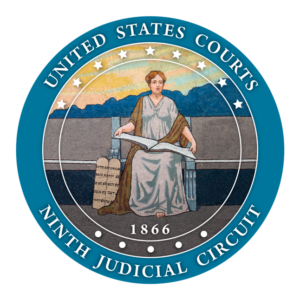 By Gerald L. Maatman, Jr. and Tyler Zmick
By Gerald L. Maatman, Jr. and Tyler Zmick
Duane Morris Takeaways: In Ipina v. TCC Wireless, 2023 IL App (1st) 220547-U (Nov. 9, 2023), the First District of the Illinois Appellate Court held that T-Mobile retailer TCC Wireless was barred from enforcing an arbitration clause in the plaintiff’s employment agreement based on TCC’s actions in an earlier-filed privacy class action it settled. The Court determined that TCC was collaterally estopped from compelling the plaintiff’s claims to arbitration because TCC had unsuccessfully moved to send nearly identical claims to arbitration in the earlier-filed case. In doing so, the Illinois Appellate Court embraced a broad view of the circumstances in which “offensive” collateral estoppel is warranted in the class action context – that is, when a party may be prohibited from making an argument that was already raised and rejected in an earlier case.
Background
Plaintiff Stephanie Ipina alleged that while employed by Defendant TCC Wireless, she used a fingerprint-based timekeeping device to clock in and out of work. According to Plaintiff, her use of the timekeeping device resulted in TCC collecting her biometric data. Plaintiff claimed that TCC did not give her prior notice that it would be collecting her biometric data or obtain her prior written consent, and that TCC disclosed her data to TCC’s “payroll provider” without Plaintiff’s consent. Based on these allegations, Plaintiff asserted that TCC violated §§ 15(b) and 15(d) of the Illinois Biometric Information Privacy Act (the “BIPA”).
Plaintiff’s complaint also described a prior BIPA class action entitled Garcia v. TCC Wireless, which had been brought against TCC based on the same timekeeping device used by the Plaintiff in Ipina. In Garcia, TCC responded to the complaint by moving to compel arbitration pursuant to the plaintiff’s employment agreement, which stated that “[a]ny dispute arising out of or relating in any [way] to Employee’s employment with [TCC] . . . shall be resolved by binding arbitration . . . . except for (i) the institution of a civil action seeking equitable relief, or (ii) the institution of a civil action of a summary nature where the relief sought is predicated on there being no dispute with respect to any fact.” Id. ¶ 7.
The trial court in Garcia denied TCC’s motion to compel because TCC did not dispute that it collected employees’ biometric data without consent, and therefore the plaintiff’s claims were subject to the arbitration clause’s “carve-out” for claims “of a summary nature where no facts are in dispute.” Id. ¶ 23. The parties in Garcia later reached a class-wide settlement, after which TCC produced a list of 899 employees to include in the settlement class. Due to TCC “compil[ing] the class incorrectly,” however, Plaintiff Stephanie Ipina and other TCC employees were omitted from the list of class members eligible to receive payments in connection with the Garcia settlement.
In response to the complaint filed in the Ipina case (on behalf of Plaintiff and other individuals who should not have been omitted from the settlement class in Garcia), TCC moved to compel Plaintiff’s BIPA claims to arbitration based on the same employment agreement provision at issue in Garcia. In opposing the motion, Plaintiff argued that TCC was collaterally estopped from compelling arbitration based on TCC’s motion to compel arbitration having been denied in the Garcia action. The trial court granted TCC’s motion, however, reasoning that collateral estoppel did not apply because unlike in Garcia, in the present case TCC denied the factual allegations set forth in the complaint.
The Illinois Appellate Court’s Decision
On appeal, the Illinois Appellate Court reversed the trial court and held that TCC was collaterally estopped from enforcing the arbitration provision in Plaintiff’s employment agreement.
The Court noted that collateral estoppel is an equitable doctrine that “promotes fairness and judicial economy by preventing the relitigation of issues that have already been resolved in earlier actions.” Id. ¶ 21 (internal quotation marks and citation omitted). A party seeking to collaterally estop its opponent from raising a particular argument must show that (i) the current issue is identical to one that was resolved in a prior action; (ii) the court in the previous matter entered a final judgment on the merits; and (iii) the party against whom estoppel is being asserted was a party, or in privity with a party, to the prior litigation.
The Appellate Court summarized TCC’s litigation conduct in Garcia by noting that in that case, TCC did not dispute that it collected employees’ biometric data without consent; in light of that fact, the court in Garcia denied TCC’s motion to compel arbitration because of the arbitration provision’s exception for claims of a summary nature where no facts are in dispute; the court also denied TCC’s motion to reconsider the order denying TCC’s motion to compel arbitration, which denial TCC did not appeal; and the parties subsequently settled the case on a class-wide basis.
Based on these facts, and contrary to the trial court’s order, the Appellate Court ruled that Plaintiff had shown that the collateral estoppel elements were established, and that the trial court erred in not applying the doctrine.
First, the Appellate Court rejected TCC’s attempt to distinguish the present case from Garcia on the basis that unlike Garcia, in this case TCC had denied the allegations in Plaintiff’s complaint. According to the Appellate Court, this argument was contradicted by the position TCC had taken throughout the litigation, which is that Plaintiff should have been included in the Garcia settlement because TCC collected her biometric data before she signed a consent form. Because “TCC is bound by these admissions,” the Appellate Court ruled that the issue in the present case was identical to the issue resolved in Garcia because TCC had effectively conceded the plaintiffs’ factual allegations in both cases. Id. ¶ 25.
Second, the Appellate Court found that the trial court in Garcia entered a “final judgment on the merits” when it issued an order granting final settlement approval and dismissing the case with prejudice. Acknowledging the split in authority as to whether a settlement agreement qualifies as a “final order on the merits,” the Appellate Court sided with those decisions reflecting the proposition that “policy reasons counsel in favor of applying the doctrine of collateral estoppel to interlocutory judgments after settlement and dismissal with prejudice.” Id. ¶ 28 (citation omitted). As stated by the Appellate Court, “[c]ollateral estoppel exists to prevent litigants from doing exactly what TCC attempts. The doctrine’s purpose is to prevent a party from losing an issue on the merits, but then relitigating it before a different judge to procure the desired result.” Id. ¶ 29. Thus, the Appellate Court found that Plaintiff satisfied the second element.
Third, the Appellate Court held that the last collateral estoppel element was satisfied because TCC was the defendant in Garcia and was the same party against whom estoppel was being asserted in the present case. See id. ¶ 30 (“TCC was a party in Garcia, where it had the same incentive to fully litigate the enforcement of the arbitration clause (and in fact did so).”). However, the Appellate Court also noted that while both parties argued on appeal the issue of Plaintiff’s privity, that was is “irrelevant” because “the privity requirement only applies to the party against whom estoppel is asserted.” Id.
Implications For Corporations
Ipina is an important reminder that a litigation decision made in one case can have potentially significant consequences for that party in an entirely separate action. As illustrated in the Ipina case, a party’s position in one matter (e.g., a defendant conceding the truth of certain factual allegations in a complaint) can be used to limit (or entirely foreclose) that party’s ability to raise a defense in another matter – regardless of how strong the defense might be on the merits.
Thus, corporate defendants should always think about the “big picture” when deciding on a course of action to take in defending a lawsuit. They should consider not only how a defense position may impact that particular litigation, but also how the position could affect separate and seemingly unrelated actions involving the same (or a related) party, whether in cases that are currently pending or that may be filed in the future.
 By Eden E. Anderson, Rebecca Bjork, and Gerald L. Maatman, Jr.
By Eden E. Anderson, Rebecca Bjork, and Gerald L. Maatman, Jr.







